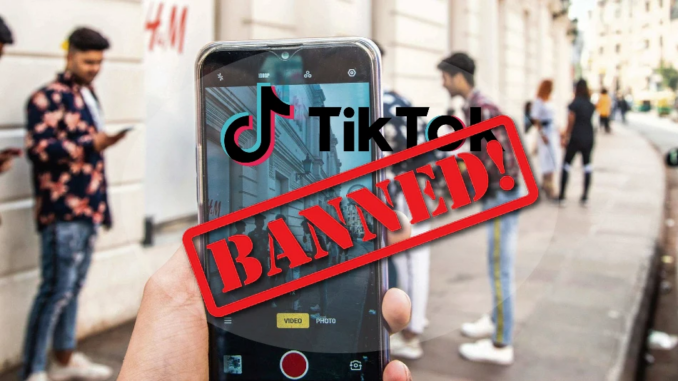TikTok ban serves U.S. trade war and Meta monopoly
The U.S. House of Representatives passed a bill on March 13 that would impose a total ban of the social media app TikTok. President Joe Biden announced his support for the bill and plans to sign it into law if it succeeds in the Senate. The bill stipulates that TikTok’s Chinese parent company, ByteDance, will have six months to find a U.S. buyer for the massively popular platform.

The bipartisan bill was proposed by Republican Rep. Mike Gallagher of Wisconsin. He has stated: “Allowing the app to continue to operate in the U.S. would be like allowing the U.S.S.R. to buy up the New York Times, Washington Post and major broadcast networks during the Cold War. No country with even a passing interest in its own security would allow this to happen, which is why it’s time to ban TikTok and any other [Communist Party of China]-controlled app before it’s too late” (gallagher.house.gov, Dec. 13, 2022).
Bipartisan China-bashing
This red-baiting, anti-China bill secured overwhelming support in the House, with only 65 representatives of the 455 dissenting. Democratic Rep. Anna Eshoo of California voiced her support of the ban: “I doubt that TikTok’s 170 million users, I don’t think they’re concerned about our national security. That’s not something that they deal with day in, day out. They have their businesses, communications and all of that with TikTok, and they love it. But if something presents a national security threat to the United States of America, I damn well better pay attention to that as a member of the Congress of the United States” (The Verge, March 15).
TikTok users and public objectors are troubled by the lack of specific details and material evidence surrounding security concerns that the bill purports to defend. Gallagher and other politicians have failed to articulate exactly which aspects of ByteDance’s business operations and/or Chinese foreign policies pose a legitimate threat to U.S. public safety. Supporters of the bill claim that the Communist Party of China has access to personal and private data and, further, that the CPC uses TikTok to spread information that is favorable to Chinese interests.
These are unsubstantiated claims, and TikTok’s alleged practices are not unique to the industry. In 2018 several countries sued Facebook and Cambridge Analytica over personal data harvesting. The lawsuit revealed how pervasive and extensive data tracking of users had been on all social media platforms.
Many in the tech industry explain that there is nothing unique about ByteDance’s algorithm and data collection. Furthermore, the information that Gallagher claims TikTok has access to is nothing that couldn’t already be purchased from third party data-harvesting services.
It is clear that such a bill is not in the interest of U.S. workers, but rather serves as a method of protectionism to remove Chinese social media presence in favor of domestic companies like Meta. Social media is a new battleground in the U.S. trade war with China. The language of the bill will set a precedent that all “foreign adversary controlled applications” will be subjected to such protectionist measures, despite nearly unfettered access to data that the U.S. tech industry profits from across the globe.
Given that Meta already enjoys a virtual monopoly in the social media sphere — half of the world’s population had an account of at least one Meta subsidiary by 2023 — the tech giant will undoubtedly be the biggest beneficiary of this bill. Additionally, given that TikTok’s valuation is estimated at over $200 billion, Meta will be among one of the only mega-corporations capable of purchasing the app.
Purchasing TikTok would expand the near-monopoly of the social media business enjoyed by this capitalist billionaire corporation. The working class has nothing to gain from China-bashing nor from the potential enrichment of the already filthy rich owner of Facebook, Instagram, WhatsApp and more.

